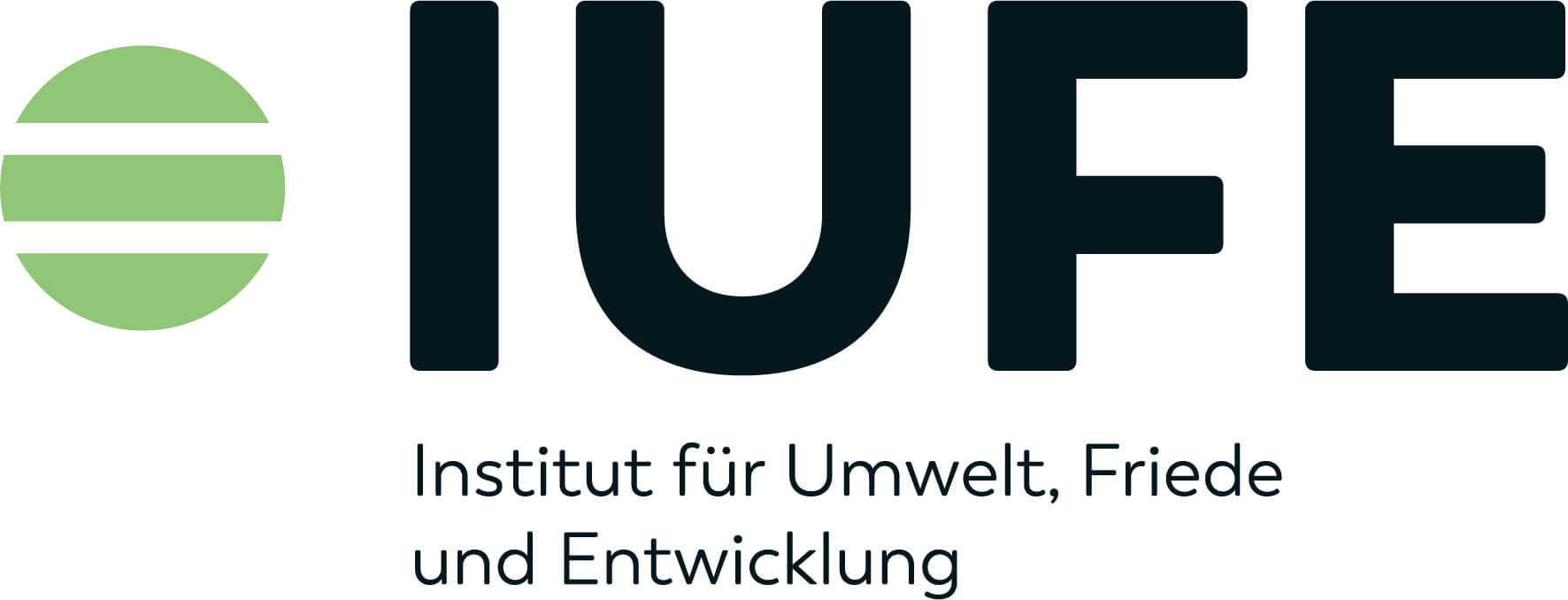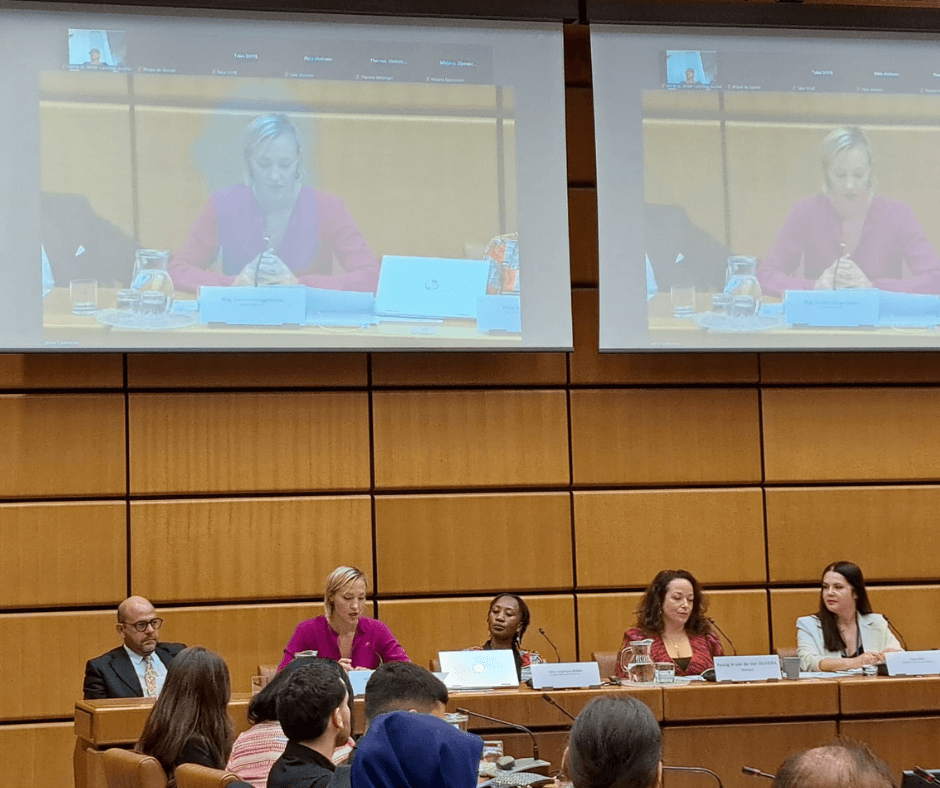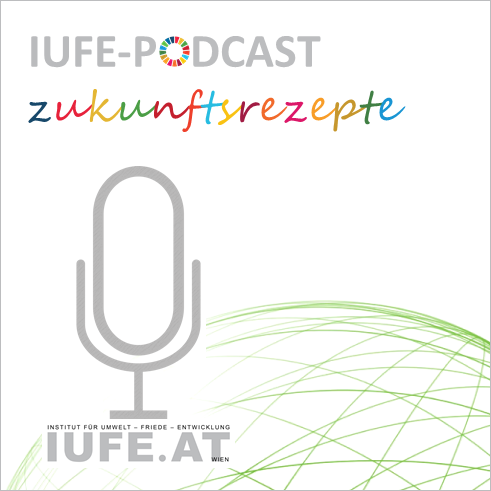Rede im Rahmen der Veranstaltung "Sustainable Peace starts now - with education" |
Das IUFE hatte die Ehre, einen Redebeitrag im Rahmen dieser international hoch besetzten Veranstaltung zu leisten. Die Veranstaltung fand am 7. August 2025 im VIC statt und wurde von der Women`s Federation for World Peace, Debate for Peace und einigen in Wien angesiedelten, diplomatischen Vertretungen organisert.
Hier finden Sie die Rede der IUFE-Geschäftsführerin im Wortlaut:
Excellencies, distinguished delegates, esteemed guests,
It is both an honor and a privilege to address you today as the Executive Director of the Institute for Environment, Peace, and Development to advance the themes of sustainable peace and education.
Sustainable peace starts now.
Well, I was born and raised in a country where peace does not have to start — because peace already exists. And so, if you will forgive me, I will not speak about today’s wars and violent conflicts.
Although these conflicts deserve our full attention and the goodwill of the global community. However, I will not dare to speak of realities I only know from the headlines.
Instead, I will speak about a different kind of peace: a peace already achieved — and the challenge of preserving it. I will speak about peacebuilding in its truest sense: safeguarding the conditions to prevent positive peace.
For peace does not simply reproduce itself. You may recall the Böckenförde dictum: “The liberal, secular state lives by conditions which it cannot itself guarantee.”
Ladies and gentlemen, the same applies to peace. Peace depends on conditions it cannot guarantee by itself.
Our task, therefore, is to create and maintain those conditions for the 21st century.
Why does this matter? Because our world is changing — profoundly and at an unprecedented pace.
Three megatrends shape our time:
- Demographic change is making even peaceful societies older, more diverse, and more urban.
- Technological disruption, led by artificial intelligence, is redefining economies, governance, and even our perception of truth — while introducing new weapons systems and sparking an arms race that includes non-state actors.
- Climate change, already a reality, is leading to resource conflicts and triggering massive investments that raise profound questions about fairness and redistribution.
How, then, can we sustain peace under these conditions?
My conviction is this: Sustainable peace starts now — with education.
Why education?
Education is a value in itself. But it is also a tool — and like every tool, it can be used for building or for destruction. What matters is its content and its purpose.
Let me share three priorities for a purposeful education:
1. Future Literacy
Future literacy is the ability to imagine multiple scenarios — and to understand that the future is not fixed. Those who believe everything is predetermined lose hope. Those who believe they can shape the future take action.
Future literacy empowers people to become agents of change, to write a better story for tomorrow.
2. The Power of Forgiveness
Education not only changes the future but it can also heal the wounds of the past. Let us teach forgiveness. Let us teach the courage to ask for forgiveness — and the greatness to grant it.
This is not easy. Pain and loss are real while forgiveness often feels abstract. However, although revenge may be the instinctive human response, sustainable peace cannot be built on revenge.
Forgiveness is therefore both an intellectual achievement and an act of the heart. Without forgiveness — and without the willingness to acknowledge guilt and show remorse — a seed of conflict will always remain.
3. Social Cohesion and Peace Tec
In diverse and urban societies, social cohesion does not emerge automatically from shared heritage, religion, or tradition. It must be actively cultivated — through common institutions, shared narratives, and above all, shared goals.
These goals are being negotiated right now. And it matters deeply that the vision of extremists does not prevail.
That is why we must empower people to use technology for transparency and participation.
Here, PeaceTech plays a crucial role: technologies that foster peace, such as AI-driven conflict early-warning systems, digital dialogue platforms, and tools to counter disinformation.
Yet while billions are invested in new weapons, PeaceTech receives only a fraction of that funding. This imbalance must change — because in an era of hybrid threats and deepfakes, PeaceTech is not optional; it is essential.
Ladies and gentlemen, sustainable peace does not begin someday. It begins today — wherever we invest in education that enables people to keep hope alive, to take responsibility, and to use AI for good.
And here, I see the strength of the young generation. Young people who choose peace are doing something extraordinary: They resist the current of cynicism and violence. They believe in a future that can be shaped — and that belief is the foundation of peace itself.
To all of you walking this path: You are the architects of a more peaceful world. Your work is not only valuable — it is indispensable. Let us make sure your voices are heard and your ideas become reality.
Thank you.



